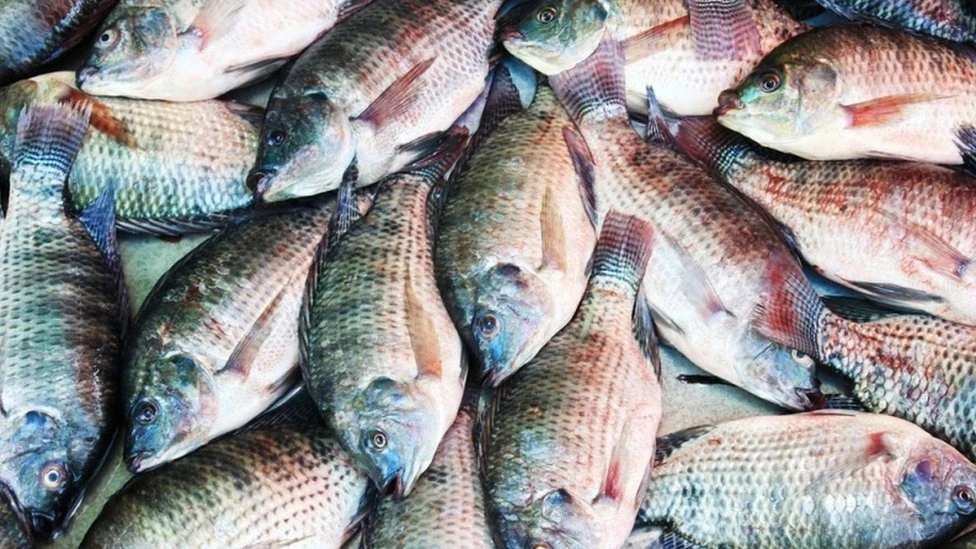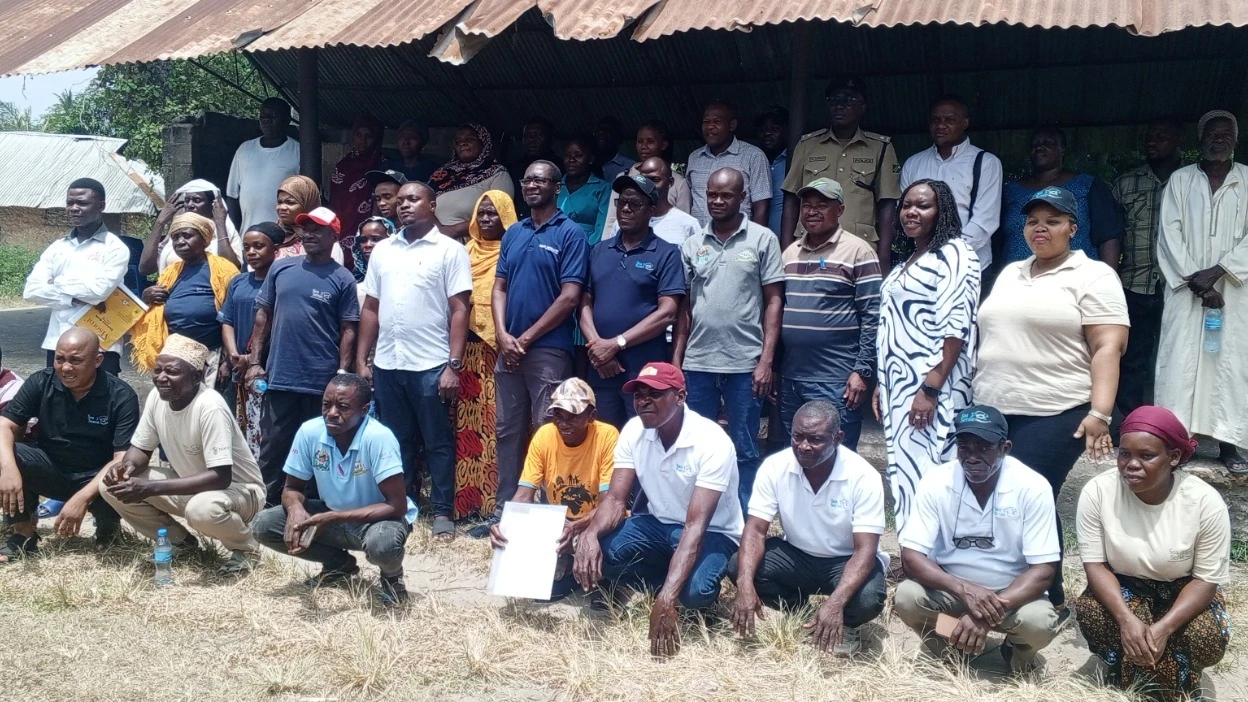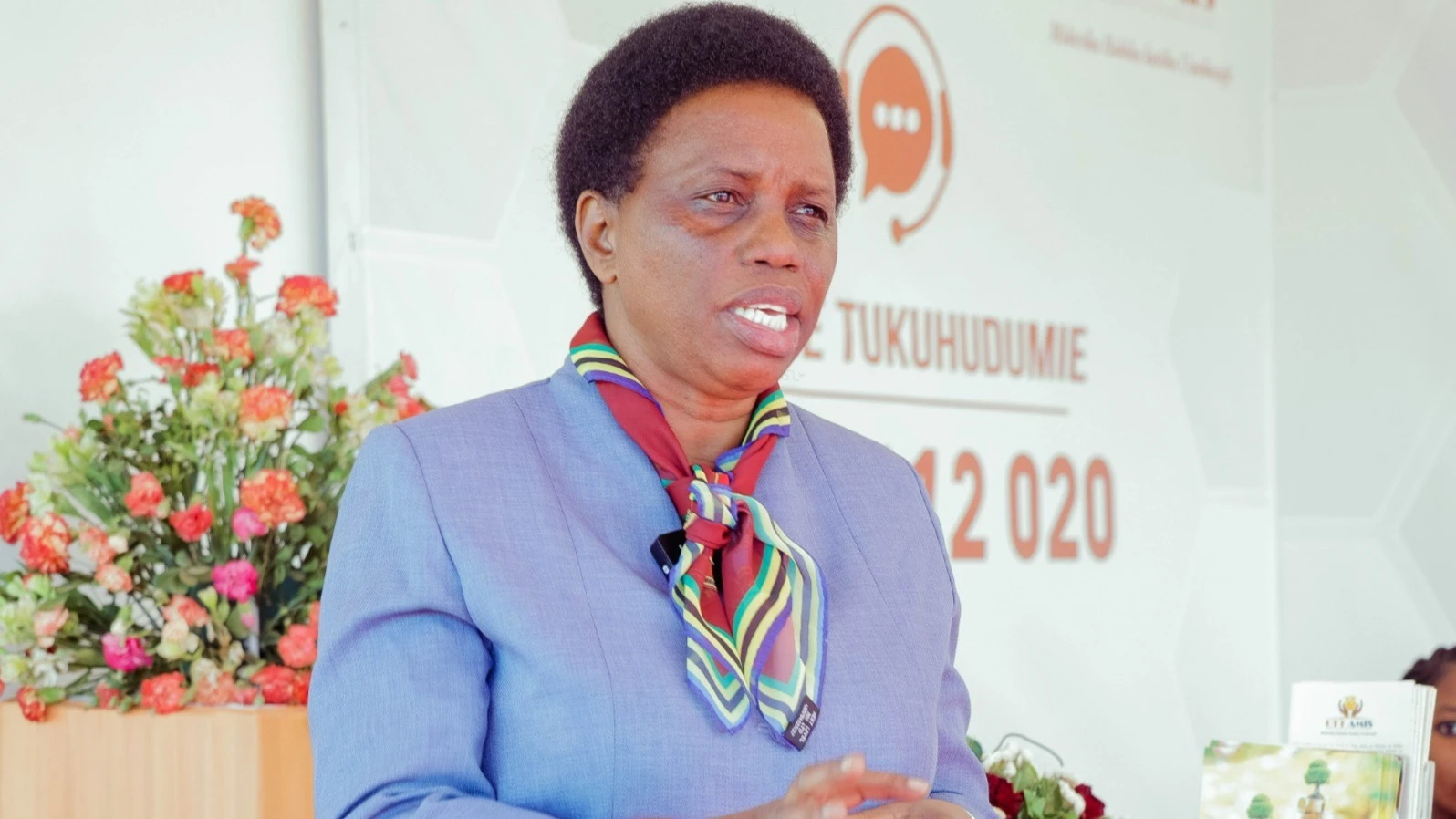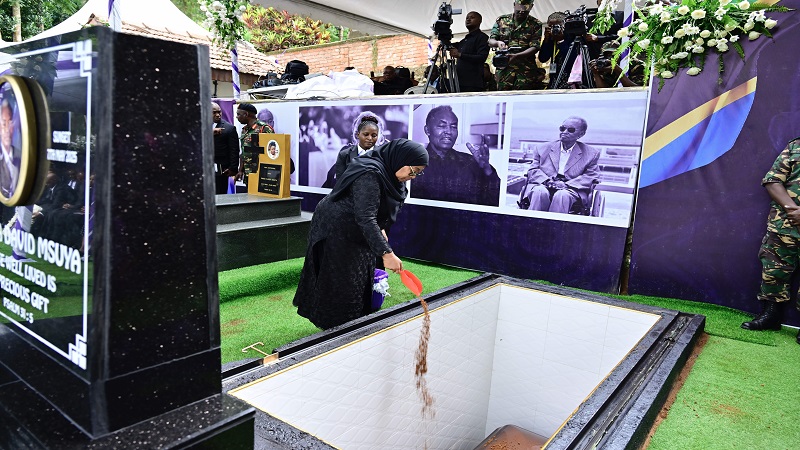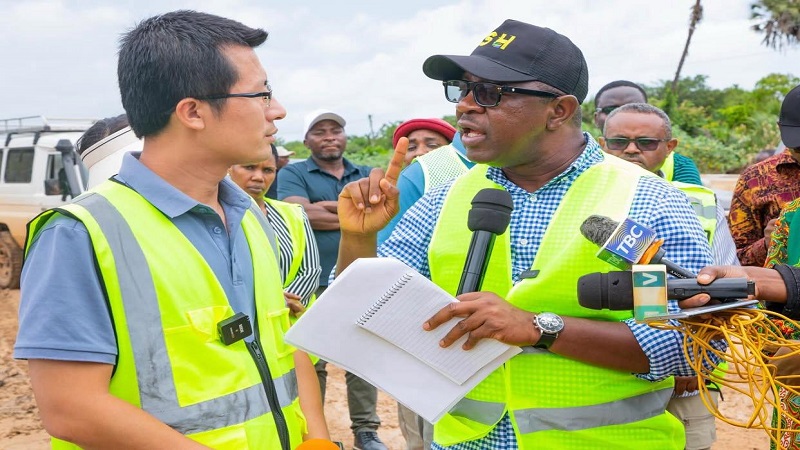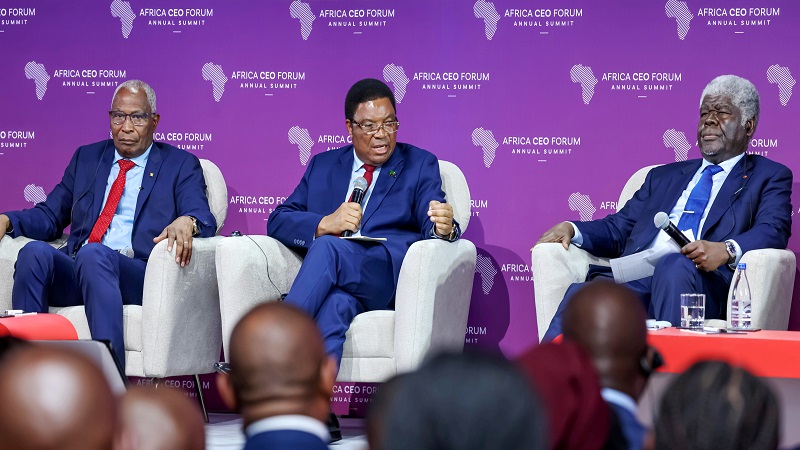Sea Sense project boosts marine life in Mkuranga
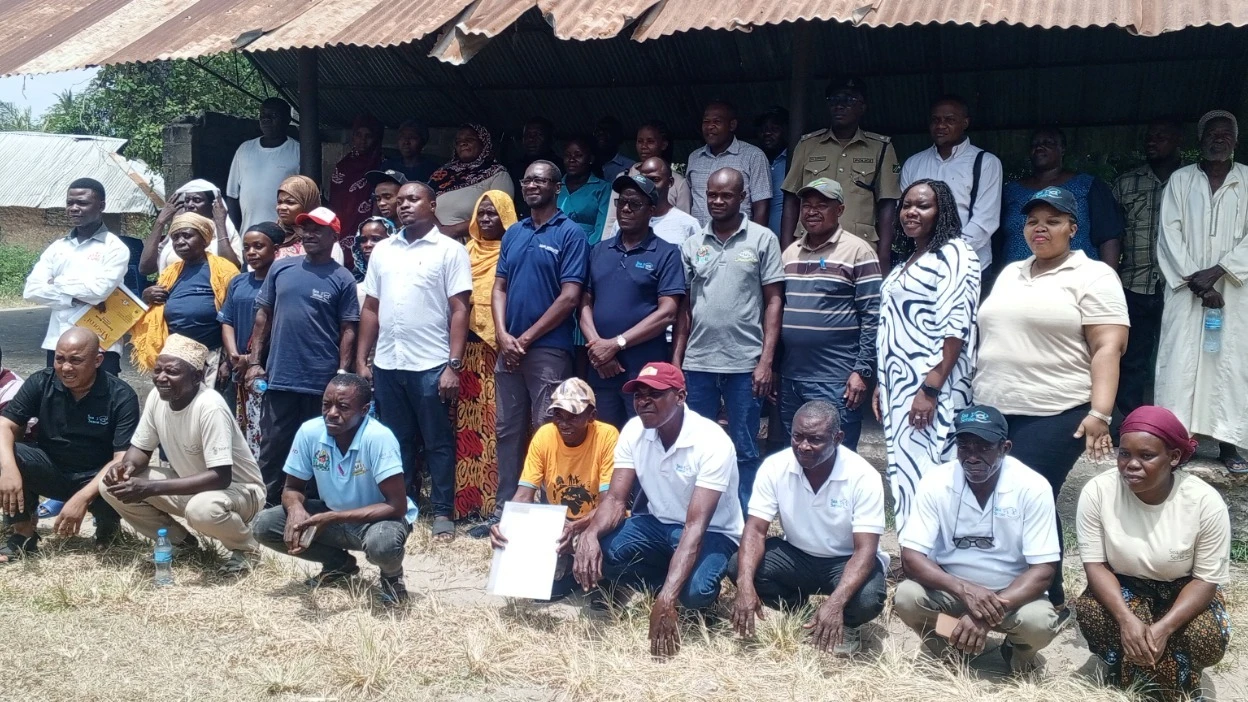
Salumu Mapoi, Assistant Senior Officer for Research and Conservation of Turtles, Dugongs, and Whales at Sea Sense, has said that a project funded by Blue Ventures has contributed to the increase of marine life, including the rise in fish populations and turtles in the ocean.
He made these remarks during a one-day visit to Kisiju in Mkuranga District, Coast Region, where Sea Sense and their main donor from the UK, Blue Ventures, visited the Mkuranga coast to observe the progress of the marine and coastal resource conservation project.
“Because turtles live in the ocean, their main role is to remove toxic plants and harmful animals from the sea, allowing fish to thrive and coral reefs to grow well,” he explained.
“Let’s remember that coral reefs are breeding grounds, feeding areas, and shelter for various marine species, so as long as the reefs remain healthy, fish and other marine life will continue to increase.”
He added that Sea Sense, with support from Blue Ventures, has been educating the community on how to conserve turtles and other marine creatures for the benefit of today, tomorrow, and future generations.
“The Mkuranga community now understands that turtles are government-protected species. They are not allowed to be caught, sold, or eaten because consuming improperly prepared turtle meat can be harmful and even fatal.”
“We have provided extensive education, and people are starting to understand that turtles must be protected in our marine reserves. They should not be hunted for food. Additionally, the country’s laws prohibit anyone from capturing, selling, consuming, or trading turtle meat, with severe penalties including long-term imprisonment, fines, or both.”
He urged the community to continue protecting the marine environment and the endangered species at risk of extinction. Salumu explained that Sea Sense, with Blue Ventures’ support, uses special tags (rings) placed on turtles' front flippers to mark and identify them as Tanzanian turtles.
He noted that this tagging exercise has been conducted twice a year since 2010, with the goal of tagging every Tanzanian turtle. “In our research, we use tags with a code starting with 'TZ' to differentiate Tanzanian turtles from those of other countries. If you see a turtle with a tag starting with 'TZ', it means that turtle belongs to Tanzania. It is illegal to harm such turtles, even if they migrate to other countries.”
“Turtles do not have territorial boundaries in the ocean, so they travel to Kenya, South Africa, Mogadishu, Somalia, Seychelles, and other areas, and turtles from those countries also come to Tanzania.”
“Tanzania has some of the world’s best marine grazing areas, which attract marine species from various countries to feed here. Areas like Mkuranga, Mafia, Rufiji, and Kilwa are among the best marine grazing zones globally.”
Swalha Msomi, Secretary of Kisiju BMU (Beach Management Unit), said that through collaboration with Sea Sense and funding from Blue Ventures, they have witnessed significant positive changes in marine conservation, which are expected to boost the coastal economy.
“There has been a substantial increase in membership of coastal conservation groups (BMUs) because people now see the benefits of participating in marine resource conservation, unlike before when they thought it was a ploy to take away their sea resources.”
“Through the sea, which is the main source of income for coastal communities, their livelihoods will continue to improve. In the next five years, we expect to see a transformation from traditional mud and thatch houses to iron-roofed houses, and children will have better access to education.”
“There is now a noticeable difference in fishermen’s income compared to three years ago. This increase is due to the growth of marine resources resulting from intensified conservation efforts.”
Gozbert Katunzi, Executive Director of Sea Sense, emphasized the need for government investment to support marine conservation groups (BMUs) to ensure communities continue to protect and benefit from marine resources.
“The ocean is rich in resources, with various species of fish. If we invest more in conserving these resources, the country's economy can significantly improve.”
Katunzi explained that Sea Sense operates along the Indian Ocean coast in Tanzania, covering regions like Pwani, Tanga, Lindi, Dar es Salaam, and Mtwara, providing education, skills, and microloans to marine conservation groups.
He urged the government to consider allocating budgets to strengthen BMUs in marine resource conservation.
“My advice to the government and other stakeholders is to support marine conservation initiatives so that the education we provide to communities yields tangible results, especially in protecting the marine environment and ensuring economic benefits.”
He added that, while the government has facilitated the legal registration of BMUs, it should also deploy experts to support these groups to ensure sustainability and follow up on the education provided by NGOs and stakeholders.
“So far, BMU members have taken the initiative to educate their communities on marine conservation, and their participation has significantly increased.”
“Before we started forming BMUs and educating the public, marine conservation crimes were rampant. People and fishermen lacked awareness. There was also fear in communities, thinking that sustainable fishing initiatives were aimed at taking away their resources. However, with education, they now understand that sustainable fishing is a long-term benefit.”
“We have seen positive results after conservation efforts. Fish populations have started to increase, and conflicts between the government and fishermen have decreased because communities themselves are now combating illegal fishing practices.”
“In addition to educating fishermen on responsible fishing, we also teach them how to manage their finances to ensure that the income they earn is used effectively, thereby improving individual and community livelihoods. Fishing can contribute significantly to the national economy if managed well.”
Hamisi Waziri, a renowned BMU marine conservation elder in Kisiju, Mkuranga, highlighted the significant increase in marine resources following joint efforts by the government, Sea Sense, and Blue Ventures.
He stressed the importance of continuing education to ensure everyone remains committed to marine conservation for the benefit of current and future generations.
Anita Verijo, the Executive Officer of Kisiju Ward, expressed gratitude to Sea Sense and Blue Ventures for facilitating training, financial resources, and equipment for marine environmental conservation.
She mentioned that five years ago, marine life, including turtles, was heavily poached along the Mkuranga coast. However, after deploying turtle officers in every village and forming BMUs, marine creatures are now being protected.
“Nowadays, when baby turtles return to the sea, we, as both government and community members, are there to witness them breeding and returning safely to the ocean. We now have safe turtle breeding grounds thanks to Sea Sense and Blue Ventures for making this project a success over the past five years.”
“We have also replanted mangroves that were previously cut down. Today, people are proud to be BMU members, and conflicts between the government and citizens over marine resource conservation have diminished as everyone now participates in environmental protection.”
Top Headlines
© 2025 IPPMEDIA.COM. ALL RIGHTS RESERVED













